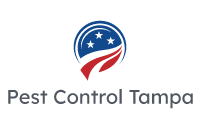Title: The Power of Vinegar: Unveiling its Impact on Termites in Pest Control Tampa
Introduction: Discover the hidden potential of vinegar as a natural remedy to combat termites. Unleash the astonishing effects vinegar possesses in repelling and eliminating these unwanted pests. In this article, we delve into the science behind vinegar’s interaction with termites, providing valuable insights for effective pest control strategies in Tampa.
Using Vinegar for Termite Control in Pest Control Tampa
Using Vinegar for Termite Control in Pest Control Tampa:
Vinegar is a commonly used household item that can also be effective in controlling termites. Termites are destructive pests that can cause significant damage to homes and structures if left unchecked. While professional extermination is often necessary for severe infestations, vinegar can be used as a natural and non-toxic solution for minor termite problems.
Vinegar contains acetic acid, which has a strong odor and taste that is repulsive to termites. By spraying a mixture of equal parts vinegar and water near termite-infested areas or directly onto the pests themselves, you can deter them from invading your property.
However, it is important to note that vinegar alone may not completely eradicate a termite colony. This method is most effective for small infestations or as a preventive measure against future termite problems. Professional pest control services should still be consulted for larger-scale infestations to ensure complete eradication and prevention of future damage.
In conclusion, vinegar can be used as a temporary solution for termite control in Pest Control Tampa. However, for more severe infestations, it is recommended to seek professional pest control services to protect your property effectively.
Frequent questions
Can vinegar effectively kill termites and be used as a natural pest control method in Tampa?
Vinegar is not considered an effective method for killing termites or controlling them as a natural pest control method in Tampa. While vinegar can be useful for certain household cleaning tasks, it does not have the necessary properties to effectively eliminate termite colonies.
Termite infestations require targeted methods that target the colony directly, such as professional pest control services. These services typically involve the application of specialized termite control products like liquid termiticides or bait systems that are specifically designed to eradicate termite colonies.
It’s important to remember that termite control is a complex process that requires professional intervention to ensure the infestation is fully eradicated and future damage is prevented. Consulting with a reputable pest control company in Tampa is recommended for effective and long-term termite control solutions.
How does the acetic acid in vinegar affect termites and their ability to infest structures in the Tampa area?
Acetic acid, which is present in vinegar, can be effective in deterring termites and preventing them from infesting structures in the Tampa area. Termites are highly sensitive to the strong odor and acidic nature of vinegar. When termites come into contact with vinegar or acetic acid, it disrupts their chemical communication and navigation abilities.
The acidic properties of vinegar can also damage termites’ exoskeleton, leading to dehydration and eventual death. The high acidity of vinegar creates an unfavorable environment for termites to thrive in.
While vinegar can be a useful tool in pest control, it is important to note that it may not completely eliminate termite infestations. Professional extermination services and long-term preventive measures should also be employed to effectively manage termite problems in Tampa structures. These measures can include regular inspections, treatment plans, and eliminating moisture sources that attract termites.
In conclusion, the acetic acid in vinegar affects termites by disrupting their communication, damaging their exoskeleton, and creating an inhospitable environment for them to infest structures in the Tampa area.
Are there any alternative or complementary treatments that can be combined with vinegar to enhance its effectiveness in controlling termites in Tampa’s pest control efforts?
Yes, there are alternative or complementary treatments that can be combined with vinegar to enhance its effectiveness in controlling termites in Tampa’s pest control efforts. One popular option is to mix vinegar with essential oils such as orange oil or neem oil. These oils have natural insecticidal properties and can help in repelling and killing termites.
Orange oil contains d-limonene, which is toxic to termites. When mixed with vinegar, it creates a powerful solution that can be used to treat termite-infested areas. Simply mix equal parts of vinegar and orange oil and apply the solution to the affected areas using a spray bottle.
Neem oil is another natural product that can be combined with vinegar for better termite control. Neem oil contains azadirachtin, which disrupts the feeding and reproductive systems of termites. To use neem oil with vinegar, mix a teaspoon of neem oil with a cup of vinegar and spray it on the infested areas.
It’s important to note that while these treatments can be effective in controlling termites, they may not completely eliminate an infestation. If you have a severe or persistent termite problem, it is recommended to seek professional pest control services in Tampa.
In conclusion, using vinegar as a method of pest control, specifically against termites, can yield mixed results. While it may temporarily repel them due to the strong odor, it is not an effective long-term solution for eradicating a termite infestation. Pest Control Tampa professionals recommend seeking professional assistance to properly identify and treat termite infestations. Effective termite control methods, such as baiting and chemical treatments, should be implemented by trained technicians to ensure the complete eradication and prevention of future termite damage.
